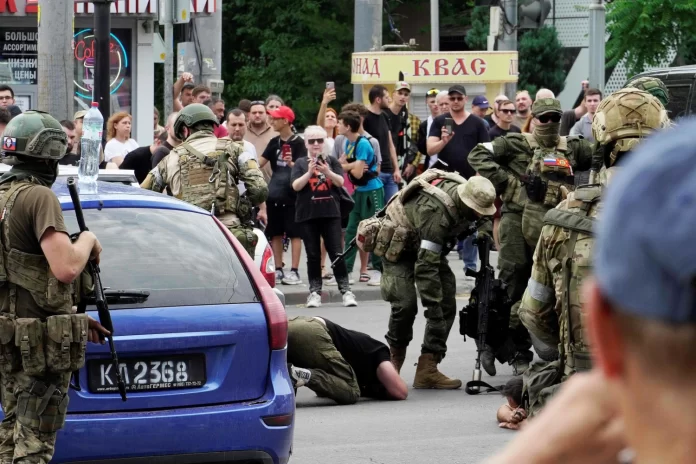In a cryptic audio message published by a Wagner-linked Telegram account, Yevgeny Prigozhin, the enigmatic leader of the infamous Wagner mercenary group, revealed their intentions to persist with their operations in Africa and Belarus. However, the shadowy group, known for its pivotal role in Russia’s invasion of Ukraine, disclosed that it is presently not seeking new recruits.
With several thousand Wagner fighters involved in a short-lived mutiny against Russia’s military leadership in June, the group now finds its forces on leave, recuperating from “a long period of very hard work,” as stated by Prigozhin. Despite this respite, he emphasized that the group’s focus remained undeterred, asserting that all future endeavors would be executed in the name of the “greatness of Russia.”
Notoriously active in multiple parts of Africa, Wagner’s presence continues to be a subject of concern for the international community. The group has also been engaged in training exercises at facilities in Belarus, further raising alarms among regional stakeholders.
Prigozhin’s audio message shrouded his forthcoming plans in secrecy, refraining from divulging explicit details. However, it is no secret that Wagner has had a significant impact on numerous African regions, raising questions about the implications of their ongoing operations on the continent.
The decision not to recruit fresh fighters at this time might raise eyebrows, but Prigozhin asserted that there was no shortage of personnel. He did, however, extend an open invitation to those interested in joining Wagner in the future, emphasizing their dedication to protecting Russia’s interests when the need arises.
Nonetheless, the recent failed mutiny prompted President Vladimir Putin to extend a unique offer to those affiliated with Wagner but not involved in the uprising. Putin invited these fighters to sign contracts with the Russian defense ministry, hinting at possible integration into formal military structures.
The enigmatic Wagner group’s actions have been marked by secrecy, making it challenging to fully comprehend their motives and modus operandi. They seem to operate in the shadows, away from the spotlight of official military establishments.
Meanwhile, amidst the escalating tensions in the region, there have been reports of missile strikes in Ukraine, resulting in casualties. The volatile situation between Russia and Ukraine is far from over, with both sides engaging in drone attacks and counterattacks.
As President Volodymyr Zelensky warns of impending war, it becomes crucial for the international community to closely monitor the activities of entities like Wagner. With their continued presence in Africa and Belarus and their history of involvement in Russia’s military operations, their actions could have significant ramifications for regional stability and international relations.
In conclusion, the Wagner group’s enigmatic leader, Yevgeny Prigozhin, has spoken about the group’s intentions to continue their activities in Africa and Belarus while temporarily halting recruitment. Their shadowy presence and role in conflicts have drawn concern, and the international community must remain vigilant as they navigate through uncertain geopolitical waters. The future holds many uncertainties, and the Wagner group’s actions could undoubtedly have far-reaching consequences for Russia and the countries they operate in.





